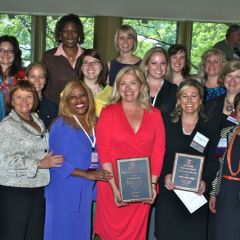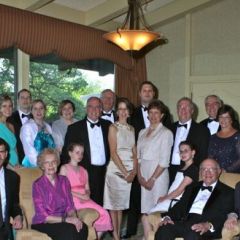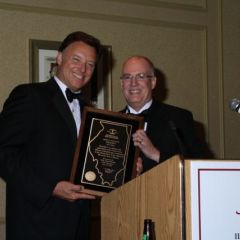ISBA submits resolution regarding ABA's Ethics 20/20
 The Illinois State Bar Association, in partnership with the American Bar Association’s Senior Lawyers Division, has filed a resolution for action by the ABA’s House of Delegates at the upcoming ABA Annual Meeting in August.
The Illinois State Bar Association, in partnership with the American Bar Association’s Senior Lawyers Division, has filed a resolution for action by the ABA’s House of Delegates at the upcoming ABA Annual Meeting in August.
The resolution reaffirms the ABA policy – adopted in 2000 – that law firms shall not be owned by non-lawyers and legal fees shall not be shared with non-lawyers. Proposals that would change this policy have been circulated in connection with the work of the ABA’s Commission on Ethics 20/20.
President John E. Thies briefed the ISBA Assembly on the proposed changes, and the need for the ISBA’s action. “Ethics 20/20 has been tasked with looking at the impact of technology and globalization on the legal profession – these are not bad subjects to consider. However, this inquiry is being used directly or indirectly as a means of advancing proposals which seek to do some of the very same things which were defeated during the battle over Multi-Disciplinary Practice,” Thies said.
A number of states have already indicated their support for the ISBA/Senior Lawyers Division resolution, including Arizona, Indiana, Maryland, Mississippi, North Carolina, and Tennessee. Thies added: “this is about defending the core values of our profession against the encroachment of non-lawyers – to the detriment of clients. It’s gratifying that so many other states are lining up behind us, and I expect this to continue as we approach the ABA meeting in August.”

 Illinois State Bar Association 2nd Vice President Paula Hudson Holderman has been named as one of the "
Illinois State Bar Association 2nd Vice President Paula Hudson Holderman has been named as one of the " John E. Thies, a shareholder at Webber & Thies, P.C., in Urbana, was installed Friday as the 136th president of the Illinois State Bar Association at the Annual Meeting at The Abbey Resort in Fontana, Wis. His installation marks the first time both a father and son have led the Association. Thies’ father, Richard L. Thies, was ISBA president from 1986-87. View pictures from the
John E. Thies, a shareholder at Webber & Thies, P.C., in Urbana, was installed Friday as the 136th president of the Illinois State Bar Association at the Annual Meeting at The Abbey Resort in Fontana, Wis. His installation marks the first time both a father and son have led the Association. Thies’ father, Richard L. Thies, was ISBA president from 1986-87. View pictures from the  The Illinois State Bar Association presented several awards to recognize individuals for their commitment and service to the profession and their communities at the Awards Luncheon on Friday, June 15.
The Illinois State Bar Association presented several awards to recognize individuals for their commitment and service to the profession and their communities at the Awards Luncheon on Friday, June 15. 


